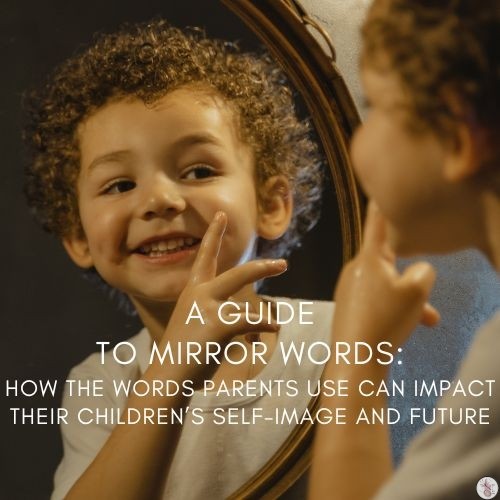Actress, Jennifer Aniston may be considered one of the most attractive women in acting, yet she recalls how her mother destroyed her self-esteem when she was a child: “She was critical. She was very critical of me. Because she was a model, she was gorgeous, stunning. I wasn’t. I never was. I honestly still don’t think of myself in that sort of light…” The actors’ statement is clear evidence of the powerful way in which the words children hear become a mirror that determines how they see themselves. While parents are responsible for shaping their children and encouraging them to be responsible for their actions, the language that they use at home can make all the difference—both positive and negative.

How Words Shape Core Beliefs
One of the world’s most effective therapies for boosting self-esteem and addressing anxiety, depression, and other conditions that are linked to self-esteem, is cognitive-behavioral therapy (CBT). This therapy seeks to enlighten people on the link between their thoughts, emotions, and behaviors. When people have a poor self-image, they frequently experience “automatic negative thoughts (ANTs)” that reinforce this negative sense of self. For instance, if they are interested in getting to know someone, their ANTs may tell them “They would never go out with you,” “You’re a loser,” or “You’re not attractive enough.” The reason these thoughts arise (in a seemingly uncontrollable fashion) is a person’s core beliefs. The latter are beliefs created in our childhood. When parents use kind words that express love, care, and support, we develop positive core beliefs about ourselves. When these words are negative, our self-image is negative and skewed. The words parents use to describe and interact with their children are highly determinative of their self-image and self-esteem.
What Do Positive Mirror Words Sound Like?
Parents can embrace the power of mirror words by letting their children know they are unconditionally loved, accepted just as they are, and supported throughout their lifetime. Parents can help their kids mirror these positive sentiments by encouraging them to harness the power of the growth mindset. This involves seeing mistakes as opportunities for growth, and understanding that everyone is capable of picking up abilities, skills, and talents through commitment and constancy. People with a growth mindset celebrate others’ success and do not define themselves exclusively through their achievements. They do not believe that you are born with or without abilities; rather, all people can grow, adapt, and improve.
Taking a Child’s Extended Circle into Account
Because words have such a powerful impact on children’s self-esteem, parents also need to ensure that other adults surrounding their children are trustworthy. For instance, if their kids are involved in sports and other extra-curricular activities, or if they are receiving private tutoring or lessons, then safety is key. Parents can conduct background checks on their kids’ tutors, ensure their kids are not left alone with other adults, and be vigilant for signs their child may be upset or insecure around certain people. Just one put-down, criticism, or insult can have a deep impact on a child’s self-esteem, and can cause them to mirror this negativity with others as they grow.
Mirroring Positivity Through Affirmations
Parents can reveal the benefits of positive words by encouraging their children to utter daily affirmations that can help boost their sense of worthiness. Far from being a “hippy” pursuit, affirmations have scientifically backed benefits, including the development of a stronger sense of self-worth, less negative talk, and reduced anxiety. Affirmations to share with your child include “I believe that I can be successful,” “I am worthy of others’ love and respect,” or “I am confident that I can express what I think and feel, with no fear.”
The words parents use can shape the way a child thinks. In households characterized by negativity, for instance, children can receive criticism and judgment and, as a result, be overtaken by negative thoughts that they find difficult to control. Parents can give their child a chance at a happy, stable life by utilizing affirmations and positive words, and by letting their children know they are capable strong, and resilient, and that they can expand their range of talents, abilities, and skills by seeing the positive side to mistakes and “failures.”